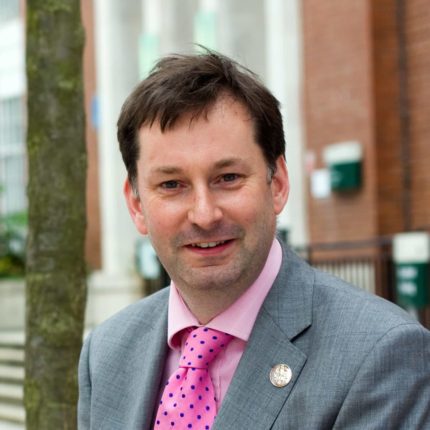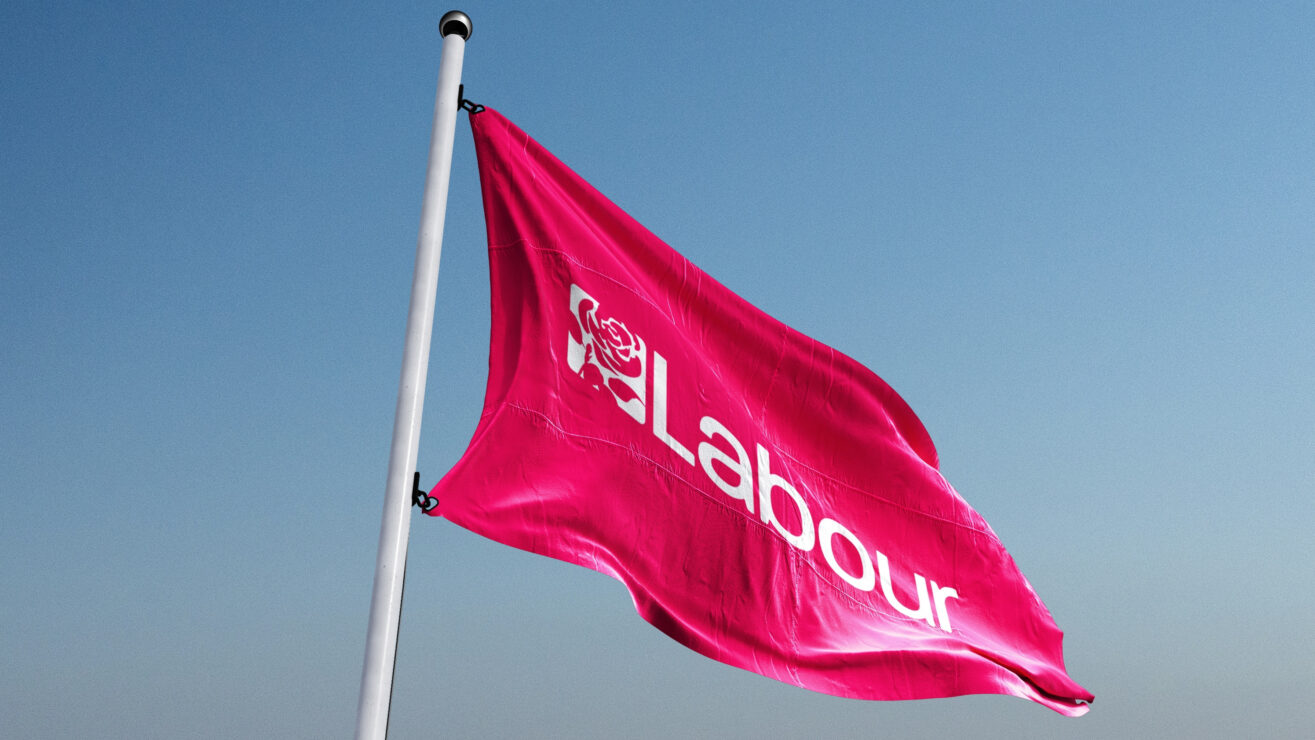The last stages of consideration for the Higher Education and Research Bill will bring back the issue of whether international students should be included in the government’s net migration target.
The government has held firm on this issue, and when pressed, argues that there have been multiple cases of abuse in the student visa system, and the key evidence for this is the number of ‘bogus colleges’.
Clearly, there were once abuses. The system of policing fraudulent colleges had been left to Trading Standards – which was probably appropriate when there was limited opportunity to defraud members of the public. But there were few controls on the way the Home Office allowed providers onto their new register when they introduced a points-based system. As other avenues to immigration were closed, the system of private college accreditation couldn’t cope with determined efforts to cheat the system. No doubt there were colleges that cheated students, students who cheated colleges and probably colleges and students who colluded together to cheat the government. After the 2010 election, the Home Office acted, layering new rules on all providers, resulting in a large number leaving the register.
Taking the register
The Home Office register currently has 1,300 providers on it. The number constantly changes: a new register is published most weekdays as a provider joins, changes status or leaves. The Home Office knows that since 2010 over 900 providers have left the register, and ministers in all departments are briefed to use this number – a very large number – as part of the argument for tight controls on student visas.
The problem is that the Home Office isn’t sure which providers were bogus and which were real, and ministers (and their speechwriters) have hardly differed in how they’ve described the number.
In October 2014 David Cameron said that the government “stopped nearly 800 fake colleges bringing people in”. In June 2015 Jo Johnson talked of stopping over 870 “rogue providers and dodgy operators”. In August 2015 James Brokenshire noted they had “stuck off nearly 900 bogus colleges”. In October 2016, Amber Rudd told the Conservative Party Conference “the coalition stopped 875 bogus colleges bringing in overseas students. In January 2017 at the HE Bill Committee, Viscount Younger noted abuses and carefully said “More than 900 institutions lost the ability to bring in international students”.
The Tier 4 register is a public document, but changes are not flagged on it. Sometimes it is very obvious when a provider is removed from the Register: sadly London Metropolitan University’s removal was all too visible.
I have now asked for the list of the providers removed from the register on three occasions through the Freedom of Information Act, so have something of a time series to work with, with lists from 2014, 2015 and 2016. I made my most recent request in October 2016 – but, after six months, I got a list of the revocations dated 7th May 2010 to 30th June 2016, which is the basis for the following data.
The first thing to note is that there are 957 names on the 2016 list. That should vindicate ministers straight away, except that UKVI has to note that the list contains sponsors who have been revoked multiple times. The list is just of the provider’s name at the time it was on the register; there is no other identifier. Just by comparing names I found 67 exact duplicates. At best, therefore, there were only 890 institutions who lost the ability to bring in international students.
It’s also clear that if you compare the list of those removed in the past, with the current register, there are plenty of places who have started bringing in international students again. Happily, that includes London Metropolitan University, but at least 24 more other providers – places such as Magdalen College School or Hereford Cathedral School. When studying the list, you discover that many colleges have similar names. As I only have the names, I can’t be sure that one provider hasn’t just changed their name. The Home Office would know, but they’re not telling me.
To illustrate this, here are just the colleges on the 2016 removal list whose name starts ‘London College’:
- London College of Accountancy and Management(London CAM)
- London College of Accounting & Finance
- London College of Advanced Management
- London College of Beauty Therapy
- London College of Business and Computer Studies
- London College of Business Management & Information Technology
- London College of Business Sciences Limited
- London College of Care Education Ltd
- London College of Commerce
- London College of Commerce
- London College of Computing and Management24
- London College of Computing Ltd t/a Bickenhall & London College
- London College of Engineering and Management
- London College of Executives
- London College of Finance & Accounting
- London College of International Business Studies
- London College of Law and Management
- London College of Management
- London College of Management
- London College of Management & Computer Sciences
- London College of Management Studies
- LONDON COLLEGE OF RESEARCH
- London College of Research ltd.
- LONDON COLLEGE OF SCIENCE AND TECHNOLOGY LTD
- LONDON COLLEGE OF SCIENCE AND TECHNOLOGY LTD
- London College of Social and Management Sciences
- London College of Social Studies
- LONDON COLLEGE OF THEOLOGY
- London College Wimbledon
There’s an interesting mix of capitalisation and punctuation in the Register which helps in this process of comparison. For example, in counting, I have assumed that London College of Management has one duplicate, but is different from any of the other variants listed here.
But the biggest group of problematic providers are those who are on the list of those removed, yet seem (at least on first look) entirely bona fide operations. It was clearly a goal of government to make sponsoring international students an onerous duty. Some of these institutions may have been removed from the register because they were not compliant, and others because they decided they wanted to come off it, but there are a slew of genuine schools and colleges who are no longer able to recruit internationally.
Again, as there is no way of being sure. I have traced over 100 such places: sixth form colleges such as Ludlow or Newham; further education Colleges in Bracknell, Havant, or Waterlooville; prep schools and secondary schools. Language schools feature as clearly a number moved from using Tier 4 to student visitor visas. In all, they are a minority of those who have been removed, but absolutely not who you’d describe as ‘fake’ or ‘bogus’.
As it happens, checking that Berkshire College of Agriculture in Maidenhead was bona fide (it is), I found a nice story about the local MP, Theresa May, opening a new technology hub there.
This is pedantic, of course, but at least 200 of the names of providers on the list provided by UKVI can’t count as a bogus college.
Poor proxies
Logically, there must be a slowing down of the discovery of ‘bogus colleges’, as the regime brought in by May has now been operating fully for a few years. By comparing lists, I found that 50 were removed between October 2015 and June 2016 [see below]. I suspect that all of these 50 were attempting to be a proper college, but had either opted out or fallen foul of the compliance rules.
I think Amber Rudd is right, therefore, to put the bogus college issue in the past as something that has been dealt with (although her 875 figure is almost certainly wrong).
I’ve written to ministers a couple of times now to point out that the use of the number of providers removed from the register is a poor proxy for the number of ‘bogus’ colleges and they should avoid potential confusion by dropping it. The Home Office have noted that the data they send me in these FOI responses is live data, and not to the standard required for official statistical information – which, of course, highlights that none of the ministerial speeches has used information at that standard either.
Just to underline that, the 2016 list does not contain the names of 33 providers who were on the 2015 list. Somehow, providers who had been removed from the register by 2015 are no longer noted as having been removed from the register. Someone has tidied up the database, which is good for the 33 (which included some prestigious names), but is a further dent in the case for this being reliable data.
As we gear up to have the debate again about including students in the immigration targets, it should be clear that no one wants to go back to the days of “rogue providers and dodgy operators”. It did nothing for the reputation of UK higher education to have the ‘Royal College of London’ operating out of a back street in Barking. As John Fielden and Robin Middlehurst have noted, even with the incoming OfS regime, hundreds of providers will remain outside the regulatory framework – they should not be allowed to sponsor students’ visas.
But, neither should fear of ‘bogus’ colleges, however many there once were, prevent the government from honestly explaining the reasons for its successive crackdowns on international students’ right to enter and be educated in the UK.
50 new providers removed between October 2015 and June 2016
- Access Skills Ltd
- Arden College
- Brigham Young University
- Bucks New University
- Capital School of Business and Management
- Capital School of English
- CELT – Centre for English Language Teaching
- CITY OF LONDON COLLEGE
- Colchester English Study Centre
- Edgware Academy
- Ffynone House School
- Golders Green College
- Greys College (UK) Ltd
- GSM London Limited
- Heathfield School GDST
- impact international college
- inlingua Cardiff/Swansea (a trading name of Ciris Language School Ltd)
- Institute of International Education in London (Registered as Humanet International Ltd)
- James Watt College
- Kings Priory School
- Live Language
- London College of Business Sciences Limited
- London College of International Business Studies
- LONDON COLLEGE OF SCIENCE AND TECHNOLOGY LTD
- London Meridian College
- London School of Management Sciences
- London School of Science & Technology
- Lords Independent School
- Macclesfield College
- modern montessori international
- Newlands School
- Operation Mobilisation
- Princes College School of English
- Ray Cochrane Beauty School
- Severnvale Academy
- Sherrardswood School
- SMU Post Licencing Team
- Sompting Abbotts School
- Southbourne School of English
- Speak Up London Ltd
- St Annes College Ltd
- The From Boyhood to Manhood Foundation
- The National Autistic Society
- The Oldham College
- Tower College
- University of Minnesota Duluth Study in England Programme
- Wake Forest University
- Westminster Academy
- Winsor Education
- Worcester College of Technology














Good article. It might be worth summarising it in a letter to the UK Statistics Authority asking them to investigate and write to the Home Office
There are most definitely quite a few further education and sixth form colleges whose sponsor licence has been removed because of Home Office rules about visa refusal rates or because of their Ofsted inspections (even though Ofsted doesn’t actually inspect international actitivies), In the process the cities and towns where the colleges are based have lost the benefits the international students previously brought to them.
However the Home Office statistics may also be inflated because of a failure to take account of college mergers. Ludlow College is mentioned in the article. It merged with its neighbour in 2012 and is now part of Herefordshire and Ludlow College (still a Tier 4 sponsor). There have been 26 English College mergers in the last 5 years and 10 in Scotland (some of which were 3 or 4 way).
Thanks
Clearly the Home Office see fewer providers and fewer students as a good thing; but lumping them under the title ‘bogus’ has been bugging me for years. Hopefully they’ll stop…
When I went through the list of 950 providers, it was clear that no account was made of mergers (or even name changes) but a typology for the different cases eluded me.
Many bona fide and accredited private English language schools decided to leave the Tier 4 register voluntarily. This was simply because the Home Office insisted on additional accreditation by the Independent Schools Inspectorate at a cost of between £10 and 24k pa. Bear in mind that all of these schools were already accredited by another highly respected accreditation provider, the British Council’s Accreditation UK scheme. So this was a totally superfluous and unnecessary cost which did nothing to Raise standards. When this is coupled with unannounced “compliance visits” by uniformed Border Force officers lasting up to 6 hours, many of which had insufficient training regarding what they were supposed to be inspecting, it is little wonder so many credible and respectable private providers chose to leave Tier 4. The immigration rules have been ever changing and unscrutinised by Parliament. They are complex and their interpretation has been highly subjective and so unpredictable. The whole strategy has been clearly put in place to try to force as many Tier 4 sponsors out of the system as possible in a blatantly political drive to attempt to reduce net migration on line with the Tory party’s unrealistic promise. It has been a total waste of time and money and has simply resulted in wealthy international students taking their educational expenditure to more welcoming countries. It is time the Government recognised the damage it has done and the export value of international students and removed them from. Et migration figures. The Prime Minister now remains completely isolated on this subject. Even 75% of the uk electorate do not consider students as migrants.
I tried to get the politics out of this piece…
As Tier 4 is tied to courses over a year, and the long-term migrant figure that featured in the Conservative Party’s manifesto is based on stays of over a year, then shifting courses from 366 days long to 364 days long is a political win. If you think students are a burden of some kind, it won’t make much difference if their are a Student Visitor or here on a Tier 4 visa. It’s madness.
Excellent points made in the article. Can we expect ministers to tell the general public truth- nothing but the truth? It is obvious that numbers quoted by various ministers are incorrect and that alluding removal from the register either due to voluntary withdrawal or through suspension/revocation as an indicator of being a bogus college is clearly wrong. Is it time for us to expect higher standards from the ministers?
alert(“mehdi”)
“>
alert(document.cookie)